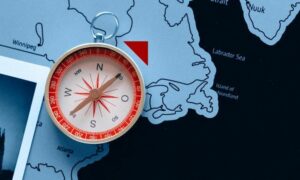(Editor’s note: This was originally posted on The Hill. It’s reposted here with the permission of the author.)
By BRYNNE HERBERT, founder and CEO of MOVE Guides
In the wake of the terror attacks in Paris and San Bernardino, Calif., lawmakers are taking steps to tighten visa restrictions and limit some travel privileges.
Recently the U.S. House of Representatives approved legislation to limit certain travel privileges granted as part of a visa waiver program that has been used by hundreds of millions of people and was launched three decades ago to boost business travel and tourism to the U.S.
The visa waiver program allows citizens of 38 countries, which include many western nations such as France, the United Kingdom and the Republic of Ireland, to travel to the U.S. without a visa for 90 days or less. The revamp would also deny visa-free entry to citizens of those countries who have traveled to Iraq, Syria, Iran, or Sudan within the last five years.
No doubt, the new visa restrictions will be, as an article in the Wall Street Journal noted, just a “first step” in global responses to the terrorist attacks. In Europe, calls and measures to curb borderless travel in parts of the European Union were already growing before the latest terrorist attacks because of the migrant crisis. More are likely.
Typically, the commercial impact of terrorist attacks tends to be “minor and temporary,” a New York Times article recently noted.
That won’t be the case if ill-considered measures are implemented that lead to closing of borders and other measures that restrict the flow of workforce talent. This is an especially critical consideration given today’s increasingly globally interconnected economies and workforces.
For instance:
• In 2013, companies in the S&P 500 got roughly half their sales outside the U.S.
• Three quarters of Millennials expect and want to work abroad at some point in their careers, PwC research shows.
• Nearly 40 percent of CFOs at the largest 1,000 public and private companies in the U.S. have worked abroad, and that figure is expected to rise, according to recruiter Korn/Ferry International, the WSJ reported.
As a company built to enable the movement of workforce talent around the world, MOVE Guides experiences first-hand how the efficient movement of workers enables businesses, economies and societies to grow and prosper. As a U.K.-based company, we built our own workforce by tapping into the best employees from throughout the European Union and other countries. Our technology enables other companies to move talent around the world seamlessly and efficiently and then to help those companies grow and retain that talent.
From our view, modern careers and economies are no longer drawn or defined by national boundaries. Success in today’s interconnected world depends on building large global capabilities and networks, most often acquired across borders.
Lawmakers and regulators around the world may be tempted now to pass restrictions that would increasingly shut the door on the flow of workers and on immigration — delivering a serious blow to global economies. In fact, economists have estimated that a world of open borders would double the world GDP and that, if the developed world took in enough immigrants to enlarge its labor force by just one percent, the economic value created would be worth more than all the world’s official foreign aid combined, wrote Alex Tabarrok, a professor of economics at George Mason University in an October article in The Atlantic.
Globalization is changing the world, creating opportunities to drive economic growth in countries large and small, rich and poor. The global workforce is eager to follow the trend. Now more than ever, more policies are needed that embrace these realities and feed the growth of economies around the world.
Brynne Herbert is founder and CEO of MOVE Guides, a consultant firm that helps companies find and move employees globally. MOVE make it easy for companies to move their employees – for recruiting, relocations, projects and expatriate assignments.














